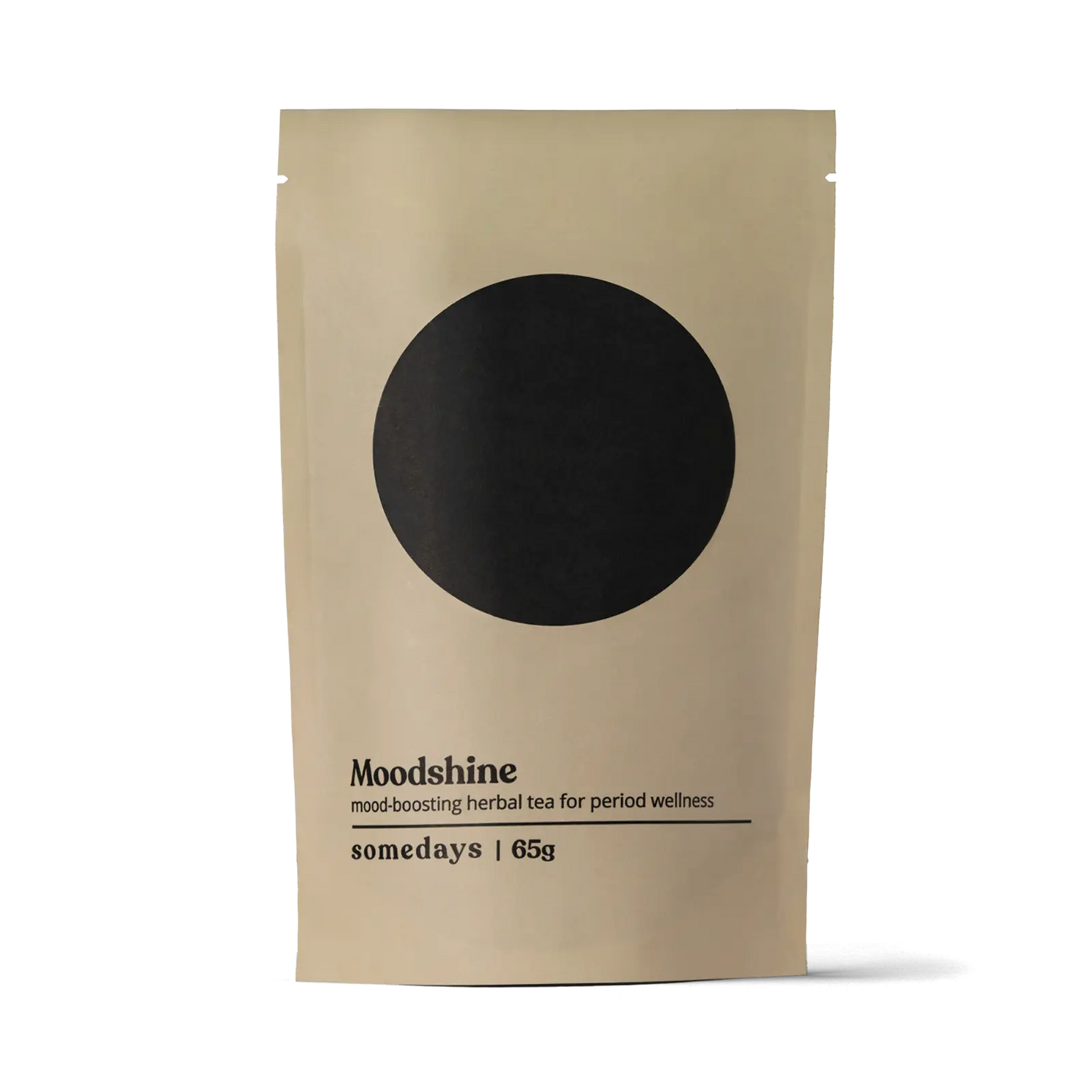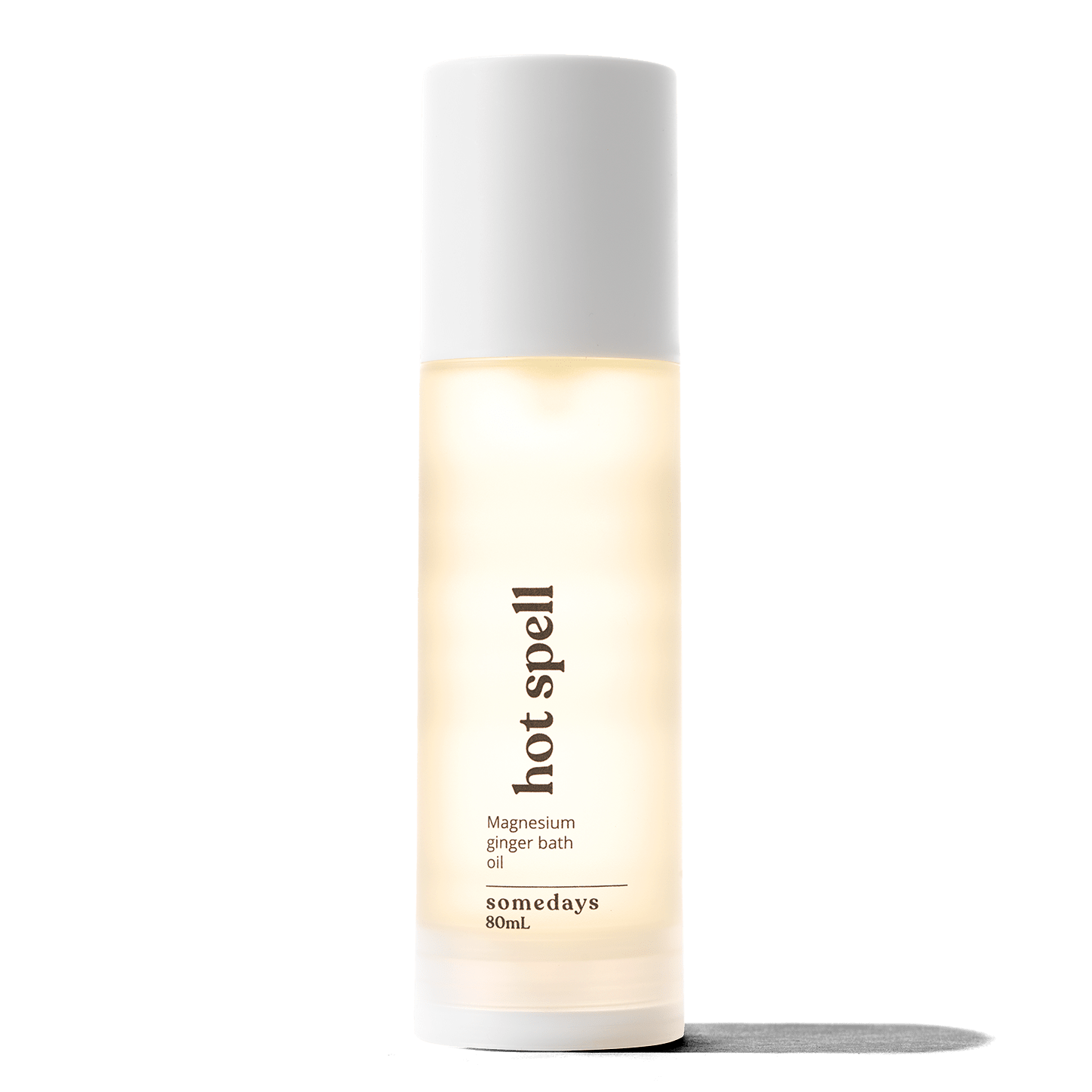Managing Chronic Illness Over the Holidays

For those of us who live with chronic illness, the holidays denote more than just cheer and opening presents. While we’d love to bask in the joy of hanging out with family and eating all the treats, candies, and carbs we want, we bring something to the function that not everyone else does: a risk of chronic illness flare-ups.
First things first: What is a Flare-up?
Simply put, a flare-up is a return of normally or previously manageable symptoms.
Many of us living with chronic illness, be it an inflammatory disease, PCOS, Endometriosis, or an autoimmune disorder, have developed a myriad of ways to manage our symptoms. We do this so that our symptoms are kept far enough at bay so that we can participate in life. Whether it's symptom management just sufficient to get us through a week of work or to go on that much-needed vacation, we are usually in a “management mode” every day of the week.
Managing symptoms can be challenging, even when we try everything possible. We might cut out certain foods, avoid specific exercises or physical activities, work remotely whenever we can, or minimize stress. We may need to modify positions during intimacy or use products that help us experience pleasure rather than pain. Or we do all of these things.
But sometimes, as with life, the delicate balance gets upset, or we cave and eat something we know will be triggering for our symptoms – maybe your kryptonite is ice cream? Or maybe the day-to-day work stress just kicked things up a notch.
This triggers a flare-up. Suddenly, symptoms such as gastro-issues, joint pain and inflammation, or highly localized pain (such as uterine or pelvic pain) get kicked up.
Navigating the holiday season, political debates at the dinner table aside, can be tricky. But here are some sure-fire ways to keep your symptoms at bay and (hopefully) enjoy the holidays rather than just get through it.
Hold Your Boundaries
There are always well-meaning family members who tell you to “just stay the night” or “a little bit of dairy won’t hurt you.” And as well-meaning as they are, they also don’t know the consequences of small adjustments of behavior for you and that you could risk finding yourself in bed for days or even weeks.
One of the hardest practices of managing chronic illness is simply saying and sticking to your “no.”
-
No, I don’t want to eat the cake (gastro-issues).
-
No, I can’t stay out too late (I need lots of rest time).
-
No, I won’t talk about politics at the dinner table (managing stress levels).
Your ‘no’ is important, even if you have to say it a few times.
Get Lots of Rest and Downtime
It’s easy to push ‘rest’ to the bottom of your to-do list when family or friend obligations feel demanding. I personally like to pad my holiday schedule out with a lot of downtime. And, lucky for me, I have a partner who agrees that a rested me is a healthier me.
Look ahead and plan an afternoon of rest after a busy brunch morning with family; Or perhaps there’s a room at your in-law’s place where you can sneak in a quiet 20 minutes between activities.
In years past, I’ve gone past my point-of-no-return and gone from one party to the next, one busy day with family followed by a full day of cooking, followed by a trip out of town. It’s simply too much. Now, I have what I call “buffers” in my schedule so that I can sit on the couch and do nothing or make sure I get a full night’s rest.
If you need help unwinding, consider indulging in Somedays Solace Soak Bath Salts, which are specifically designed to help ease aches and inflammation while calming your mind. Pair it with a warm cup of Somedays Moodshine Tea, a herbal blend that supports relaxation and helps manage stress. Together, these create the perfect self-care ritual to recharge during busy times.
Plan in Advance
It may sound overly meticulous, but organizing a holiday schedule in advance will help loads. It will also allow you to plan for proper rest and nutrition.
If I look ahead to a busy few days knowing there may only be a limited amount of food available for me with my dietary restrictions, then I have to try to find time to make snacks or food to take with me. Or, I can chat with my husband about alternating childcare so that, following a demanding day, I can rest a bit and he can take our daughter to the park or out for an activity.
Planning ahead also allows me to know when my down periods are, and how much rest I’m going to need. Sometimes it can take me two or three days to recover from a family event.
The more I plan in advance, the less likely I am going to be in bed with a flare-up of pain and symptoms.
While inevitably busy and stressful, the impact of the holiday season doesn’t have to be long-lasting. So, as long as you put yourself and your needs first, then a flare-up can be lessened or less likely to take you down in that post-holiday haze.
Amy Saunders is an SEO strategist and queer writer of poetry, prose, essays and branded content. Her work has been published in Chatelaine, VICE, TeenVogue,SheDoesTheCity and with brands such as DivaCup. She lives in the unceded and ancestral territory of Kjipuktuk with her husband and daughter.
Previous Article All Articles Next Article
All Articles


